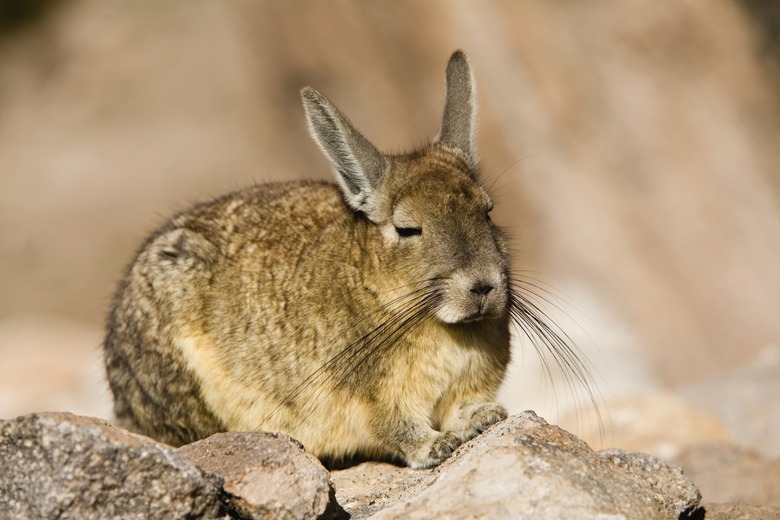What Is The Chinchilla Life Span? Here's Your Guide To The Life Span Of Chinchillas
If you bring a chinchilla into your life, expect to have him for quite a long time. Domestic, pet chinchillas usually live well into their teens, or even longer. That's a huge improvement over the lifespan of a chinchilla in the wild. Long coveted for their fur, their coats also make chinchillas good house pets. That's because the fur is so dense that parasites can't penetrate—and stroking it is a delight to the touch.
Wild chinchilla life expectancy
Wild chinchilla life expectancy
In the wild, chinchillas inhabit the South American Andes Mountains, at elevations between 9,800 and 13,000 feet. They live in savannas and mountain shrub areas, coming out at night from their dens in rock crevices to consume various types of vegetation. In the wild, a chinchilla's life span ranges between eight and 10 years. Relatively few chinchillas remain in their native habitat since trappers prized their dense, luxurious fur. These relatively small rodents were almost rendered extinct.
Domestic chinchilla life span
Domestic chinchilla life span
Today, chinchillas are raised domestically for fur and for the pet trade. The chinchilla age span of a well-cared-for pet might be between 15 and 20 years. All that fur fools the eye, making the animal appear larger than he really is. At maturity, chinchillas are 11 to 14 inches long, weighing between 1 and 2 pounds. Females are larger than males.
Chinchilla life stages
Chinchilla life stages
Chinchillas are born after an approximately 111-day gestation, fully furred. Baby chinchillas nurse until about the age of eight weeks. They become sexually mature at eight months of age. The female gives birth to between one and five kits in each litter, averaging two. In the wild, they generally give birth to two litters, possibly three, annually. Females can breed year-round.
Chinchilla care requirements
Chinchilla care requirements
Provide your chinchilla with a large, draft-free cage, away from direct sunlight. Ideally, the chinchilla cage should measure 6 by 6 by 3 feet, providing plenty of room for these active animals. Include a box, tunnel, or other suitable hiding places. Chinchillas don't do well in hot weather or high indoor heat and temperatures over 75 degrees Fahrenheit can cause heat stroke. Keep the temperature in their environment between 60 and 70 degrees.
Provide your chinchillas with dust baths at least twice weekly, using commercial chinchilla dust. Don't leave the bath bowl in the cage too long, or else you'll create a dust bowl in your home.
Chinchilla food and treats
Chinchilla food and treats
Feed your pet commercial chinchilla feed, and make sure there's always plenty of fresh, clean water available. He should always have access to grass hay, to keep his gut moving efficiently. He'll need something to chew on to wear down his constantly growing teeth. You can give him pieces of nontoxic wood or pumice stones for extra gnawing. Avoid giving him treats, as they do more harm than good for these little creatures.
Chinchilla health considerations
Chinchilla health considerations
Chinchillas are basically healthy rodents, as long as they are kept in a clean, healthy environment. It's important to find a good exotic vet ahead of time, in case your pet does get sick. Most small animal veterinarians primarily treat dogs and cats and aren't familiar with chinchilla health issues.
Because chinchillas are related to guinea pigs, most of the medications used for guinea pigs are appropriate for them, at approximately the same dose. Common diseases in chinchillas include intestinal and respiratory infections and slobbers—the latter resulting from dental problems. Take your pet to the vet at the earliest sign of illness.
